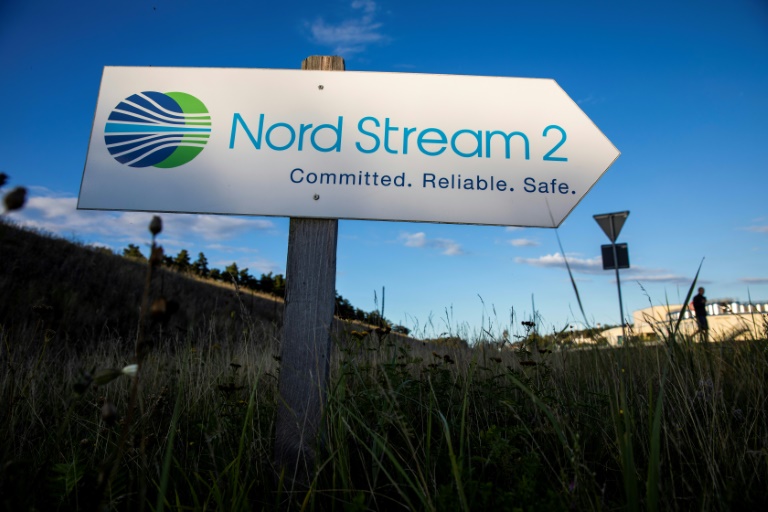The Nord Stream 2 gas pipeline from Russia will not be allowed to operate in the event of any new “escalation” in Ukraine, under an agreement between Berlin and Washington, Germany’s new Foreign Minister Annalena Baerbock said on Sunday.
“In the event of further escalation this gas pipeline could not come into service,” Baerbock told German television station ZDF, clarifying earlier threats made by Chancellor Olaf Scholz.
Baerbock was speaking after the weekend G7 meeting on tensions with Russia, and ahead of a sit-down with her European partners on Monday.
Scholz had earlier said during a visit to Poland that: “It would be a serious mistake to believe that violating the borders of a European country would remain without consequences.”
The pipeline, which has been backed by Russian President Vladimir Putin on the one hand and by Scholz’s predecessor Angela Merkel on the other in recent years, has been heavily criticised by many countries.
The United States and several Eastern European countries are worried that Europe is too dependent on Putin’s Russia.
Moreover, Ukraine — until now one of the major transit countries for Russian gas to Europe, as well as fighting Russian-backed separatist forces inside its own borders — fears that it will be economically and diplomatically weakened by the project, which bypasses its territory.
Scholz said that Germany would “do anything” to ensure that Ukraine remains a transit country for Russian gas exports to Europe.
Polish Prime Minister Mateusz Morawiecki asked Scholz to suspend the pipeline, warning that Moscow would use it to “blackmail” Europe.
The call came as Scholz visited Warsaw for the first time since replacing Merkel last week, on his third foreign visit after Paris and Brussels.
“It would be better not to allow the opening of Nord Stream 2,” Morawiecki said at a joint news conference with Scholz after their talks.
“I drew the chancellor’s attention to the risks linked to the opening of the Nord Stream 2 gas pipeline and sadly the extent to which… these risks for Ukraine could get considerably worse.”
Poland has long opposed the 10-billion-euro ($12-billion) pipeline, which is majority owned by Russian gas giant Gazprom.
The 1,200-kilometre (745-mile) pipeline, which runs underwater from Russia’s Baltic coast to northeastern Germany, was completed in September.
However, Baerbock pointed out that the pipeline “cannot be authorised for the time being anyway because it does not meet the rules of European energy legislation”.
In mid-November, the German energy regulator suspended the certification procedure for Nord Stream 2 by requiring the Swiss-based consortium in charge of its operation to create a company under German law.
Morawiecki and Scholz also offered differing views on several other issues.
Asked about the new German coalition government’s support for greater European Union federalism, Morawiecki said the concept was “utopian” and spoke of the need for a “Europe of sovereign nations”.
The two also discussed Poland’s stand-off with the European Commission over its judicial reforms — a dispute that is holding up the disbursement of much-needed pandemic recovery funds from the EU.
Morawiecki said he wanted the dispute resolved “as soon as possible” and said he had presented some “options” to Scholz, without elaborating.
But Scholz said he hoped that a “pragmatic solution” could be found but emphasised that “the rule of law and democracy are fundamental values”.









